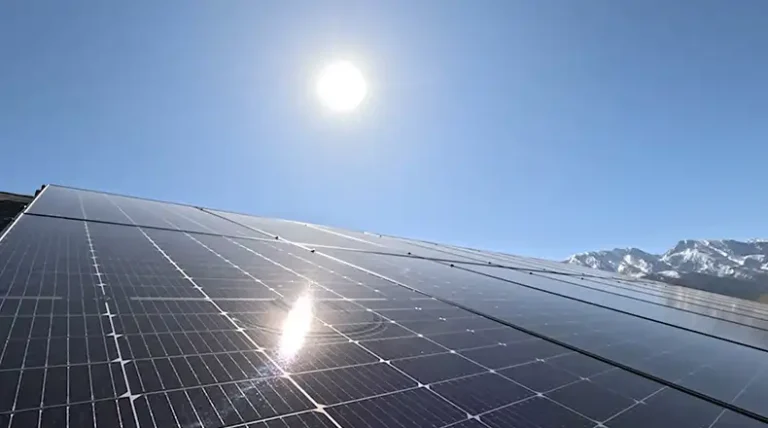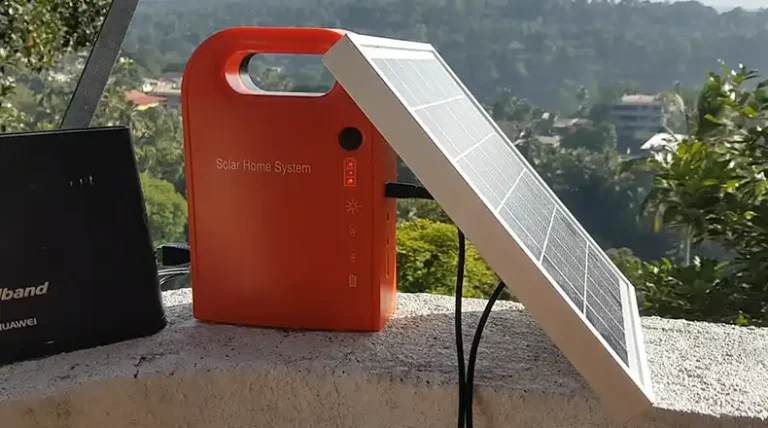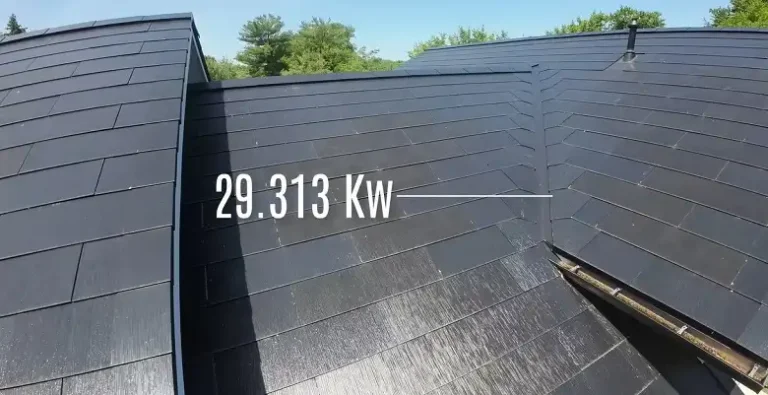Can Solar Panels Drain Batteries at Night? General Discussion
As solar panels depend entirely on the sun to charge batteries, one common concern among solar panel owners is whether these systems can drain batteries during the night when the sun is not shining.
In short, properly designed and installed solar panel systems should not drain batteries at night. So, if your solar panel doesn’t have a diode or it is not installed properly, the battery may be drained at night.
To fully understand this process and address any concerns, it’s essential to have knowledge about the intricacies of solar panel systems and battery management. For that, I’m here to help you understand whether solar panels can drain batteries at night and offer practical solutions to ensure optimal system performance.
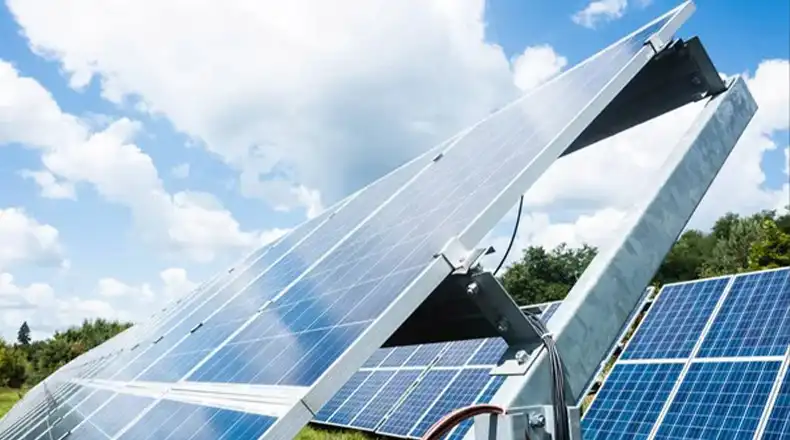
Can Solar Panels Drain Batteries at Night?
Solar panels usually work by converting sunlight into electrical energy, and this process stops at night when there is no sunlight available. But this doesn’t mean that it drains the battery at night.
In fact batteries reserve the solar energy gained by the solar panel during the day and you can use the reserved energy during the night when there is no sun. In that case, the batteries might drain. But without using the energy, there is no chance of draining the battery automatically at night.
How Solar Panel Systems Work
Before we discuss the potential for solar panels to drain batteries at night, let’s first understand how solar panel systems operate. A typical solar panel system consists of the following components:
- Solar Panels: These are the primary components that convert sunlight into electrical energy through the photovoltaic effect.
- Charge Controller: This device regulates the flow of electricity from the solar panels to the batteries, preventing overcharging and protecting the system.
- Batteries: These storage units store the excess energy generated by the solar panels during the day for use at night or during periods of low sunlight.
- Inverter: This component converts the direct current (DC) electricity stored in the batteries into alternating current (AC) for powering household appliances and electronics.
Understanding the flow of energy in a solar panel system is crucial to address the question of battery drainage at night.
Why Solar Panels Do Not Drain Batteries at Night
In a properly designed and installed solar panel system, the solar panels do not drain batteries at night. Here’s why:
- No Power Generation at Night: Solar panels rely on sunlight to generate electricity. At night, when there is no sunlight available, the solar panels stop producing energy and do not draw power from the batteries.
- Charge Controller Protection: The charge controller in the system acts as a gatekeeper, preventing the flow of electricity from the batteries back to the solar panels. This ensures that the batteries are not drained by the solar panels at night or during low-light conditions.
- Disconnect from the System: Most solar panel systems are designed to disconnect the solar panels from the rest of the system at night or during periods of low light. This further prevents any potential battery drainage.
However, it’s important to note that some minimal self-consumption or parasitic load may occur within the system components, such as the charge controller or inverter, but this is typically negligible and does not significantly impact battery levels.
When Solar Panels Might Drain Batteries at Night and their Solutions
While solar panels themselves do not drain batteries at night, there are a few potential issues that could lead to battery drainage:
Issue 1- Faulty Components: Malfunctioning charge controllers, inverters, or other system components may allow current to flow in the wrong direction, potentially draining the batteries. Regular maintenance and component replacement when needed can prevent this issue.
Issue 2- Excessive Loads: If you have excessive electrical loads connected to your solar panel system, such as high-power appliances or devices, they may drain the batteries faster than they can be recharged during the day. Proper load management and energy conservation practices can help mitigate this issue.
Issue 3- Battery Age and Condition: Over time, batteries can degrade and lose their ability to hold a charge effectively. Regularly monitoring battery health and replacing batteries when necessary can ensure optimal system performance.
To address potential issues and prevent battery drainage at night, it’s crucial to have your solar panel system professionally installed and regularly maintained by qualified technicians. They can identify and resolve any issues that may be causing battery drainage or system inefficiencies.
Bonus: Best Practices for Battery Management
To ensure optimal battery performance and longevity in your solar panel system, consider the following best practices:
- Use High-Quality Batteries: Invest in high-quality, deep-cycle batteries designed specifically for solar panel systems. These batteries are built to withstand frequent charging and discharging cycles.
- Proper Battery Sizing: Ensure that your batteries are appropriately sized for your energy consumption needs. Oversized batteries may lead to undercharging, while undersized batteries may result in frequent deep discharges, reducing their lifespan.
- Monitor Battery Levels: Regularly monitor your battery levels and ensure they are not being discharged beyond the recommended depth of discharge (DoD). Excessive deep discharges can damage the batteries over time.
- Temperature Control: Batteries perform best within a specific temperature range. Consider installing your battery bank in a temperature-controlled environment or using insulation to maintain optimal operating temperatures.
- Regular Maintenance: Follow the manufacturer’s recommendations for battery maintenance, including cleaning terminals, checking electrolyte levels (for lead-acid batteries), and performing equalization charges when necessary.
By following these best practices, you can maximize the lifespan and performance of your solar panel system’s batteries, ensuring reliable and efficient energy storage.
Conclusion
Solar panels are designed to generate electricity during daylight hours and should not drain batteries at night when no sunlight is available. However, it’s essential to ensure that your solar panel system is properly installed and maintained to prevent potential issues that could lead to battery drainage. If you have any further questions or concerns regarding solar panel systems and battery management, feel free to leave a comment below. We’ll be happy to provide additional guidance and support.
Thank you for reading, and we wish you the best in your solar energy endeavors!
FAQs
What Is the Risk of Overcharging Batteries in a Solar Panel System?
Overcharging can potentially damage batteries and reduce their lifespan. However, most solar panel systems have charge controllers that regulate the charging process and prevent overcharging, minimizing this risk.
How Often Should Solar Panel Batteries Be Replaced?
The lifespan of solar panel batteries varies depending on the type, usage, and maintenance. Lead-acid batteries typically last 3-5 years, while lithium-ion batteries can last 5-10 years with proper care.
Can I Use Regular Car Batteries in a Solar Panel System?
Car batteries are designed for short, high-current discharges and frequent recharging cycles. For solar panel systems, deep-cycle batteries specifically designed for renewable energy applications are recommended.
What Is the Best Battery Type for Solar Panel Systems?
Lead-acid batteries are affordable and widely used, but lithium-ion batteries are becoming more popular due to their higher energy density, longer lifespan, and lower maintenance requirements.
How Can I Extend the Life of My Solar Panel System Batteries?
Proper battery sizing, avoiding deep discharges, maintaining optimal temperatures, and regular maintenance can significantly extend the lifespan of your solar panel system batteries.

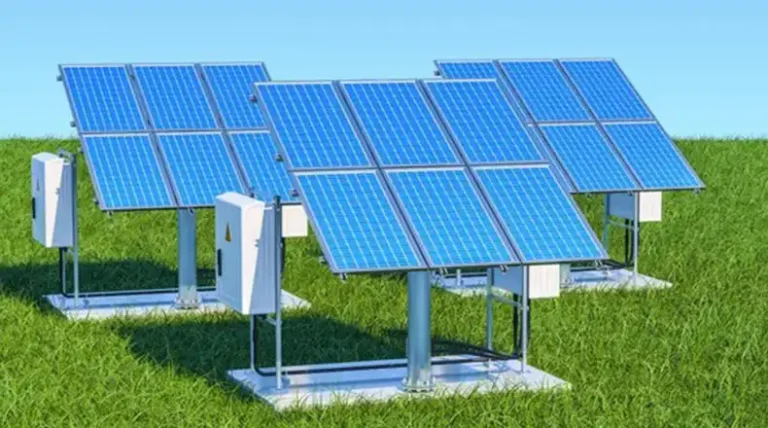
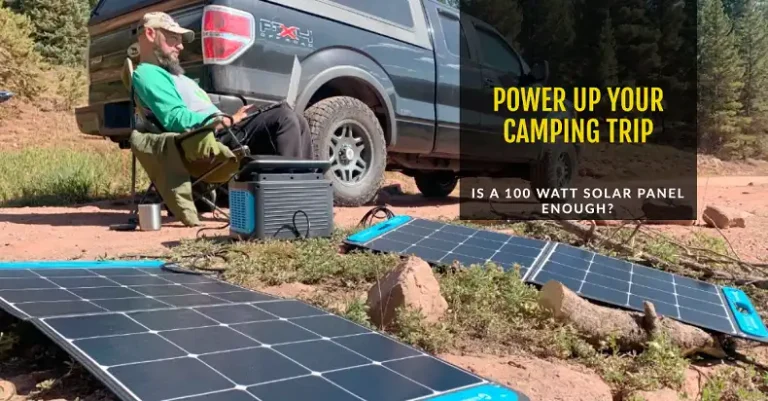
![[Explored] Can You Use Mirrors To Redirect Sunlight On Solar Panels?](https://www.itekenergy.com/wp-content/uploads/2023/08/can-you-use-mirrors-to-redirect-sunlight-768x428.webp)
